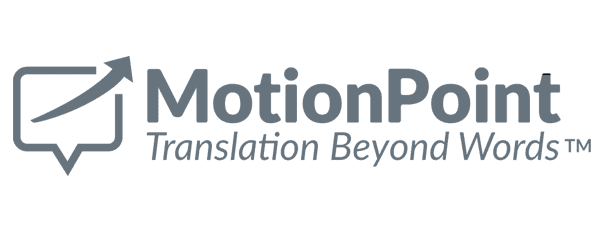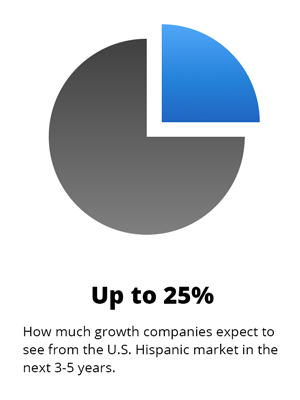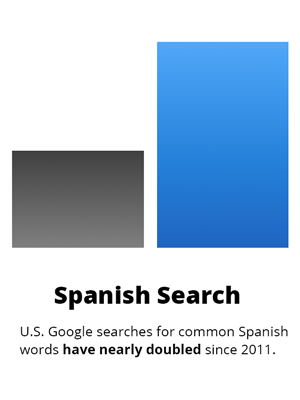




Examine the big moves of retailers such as Target, Best Buy and Walmart, and you'll see vanguard companies fully embracing "omnichannel" retailing. This strategy wisely shifts the focus of engagement & commerce to customers' buying preferences, and the setting in which they're most comfortable transacting - be it in-store, online, or in-app.
This customer-centric approach maximizes established channels such as brick-and-mortar stores, e-commerce sites, and hybrid “buy online, pick up in-store” initiatives. But now, omnichannel also leverages the influence of the mobile web and smartphone apps. That’s a smart and future-forward play, considering that mobile website traffic blew past desktop web traffic last year.
Launching and maintaining an omnichannel endeavor requires patience (as it takes time for channels to sync and deliver ROI), but even retailers who’ve experienced challenges vow to implement it properly. According to research from supply chain solution provider JDA, most executives believe omnichannel fulfillment is an essential aspect for their growth. Seventy-one percent of surveyed CEOs consider it a “high” or “top” priority. This year, nearly 30% of their expenditures will go towards improving it. Indeed, Target’s noteworthy “bricks and mobile” initiative may light the way for the industry. The company certainly understands the increasingly powerful role mobile is playing in both online and in-store buying. At a retailers’ convention in February, Target’s Jamil Ghani put it this way:
"This is a huge step change," the vice president of enterprise strategy said. "It requires thinking holistically about the guest experience. … We're delivering on demand shopping that blurs stores and mobile."
It is wise to capitalize on those blurred lines, especially considering 75% of shoppers surf the mobile web during brick-and-mortar shopping experiences. Amazingly, 25% of those shoppers make purchases on their mobile devices while in-store. Target certainly isn’t the only store seeing a “mobile lift” – beauty retailer Bed Bath & Beyond saw mobile orders double from the previous year, with e-commerce sales growing more than 40%.

However, with so much media and industry attention on omnichannel retailing in the U.S., it’s easy to overlook a massive domestic market that’s embraced mobile more passionately than any other: Spanish-speaking U.S. Hispanics.
These days, U.S. Spanish speakers represent a buying power of $1.5 trillion (up 50% since 2010). Hispanics lead the country in adoption of new digital devices, and are considered “power users” of mobile devices by Google research. Indeed, analysts have deemed Hispanics a “mobile first” market.
According to data published by Experian Marketing Services, nearly half of Hispanic smartphone owners are “mobile-dominant” with their online usage (preferring their mobiles to desktop computers). That’s a significant increase over the 38% of non-Hispanics.
This market already exists, is already leaning in, and is ready to buy. But is your omnichannel retail experience speaking its language of choice?
Retailers shouldn’t ignore the remarkable convergence of omnichannel retailing and the connected, mobile-savvy – and increasingly affluent – U.S. Hispanic market.
MotionPoint works closely with its clients (and clients-to-be) to help them understand this game-changing trend. These organizations are listening, and engaging Hispanic customers by launching Spanish-language mobile websites. Since these are often mobile-friendly versions of their existing Spanish-language desktop sites (which MotionPoint has optimized using a suite of results-driven, proprietary technologies), they're inexpensive to deploy.

These clients see immediate results, and are earning more brand trust among Hispanics - and more revenue - than ever before. One client reported monthly revenue increases of 481% when MotionPoint launched & optimized its Spanish mobile site.
Mere weeks after MotionPoint helped another client launch its Spanish mobile site, the company’s total Spanish site traffic (across desktop and mobile) grew an astonishing 80%.
Under den här perioden ökade intäkterna från spanska mobilanvändare med 363 %. Based on the revenue the Spanish mobile site has already generated, the client projects to generate, in revenue, 379 times its annual cost using MotionPoint. In fact, the total annual cost of MotionPoint’s mobile solution is less than the revenue the client generates from the mobile site in one day.
This is powerful stuff, and it’s well within reach for retailers. Again, turn to companies such as Target and Macy’s, and you’ll see progressive industry leaders “doubling down” on engaging U.S. Hispanics in their preferred language.
Of course, the opportunities to engage other markets through in-language omnichannel efforts transcend U.S. borders. Recently, online orders for “buy online, pickup in-store” eclipsed those for home delivery for one well-known UK retailer.
In-language omnichannel retail experiences are especially resonant & effective in emerging markets such as China. We recently showcased how retailers can better engage these markets – markets that are, quite likely, already making purchases on U.S. retailers’ e-commerce sites.
Armed with a global omnichannel retail strategy and fulfillment solutions that can deliver to customers at home and abroad, retailers & brands can sell more to more customers, no matter where they are – or what device they use.
Is your organization keen to engage with U.S. Hispanics, and other markets around the world, through omnichannel & online mobile experiences? Kontakta oss. MotionPoint’s solution can enhance & expand your online, mobile and offline retail efforts.